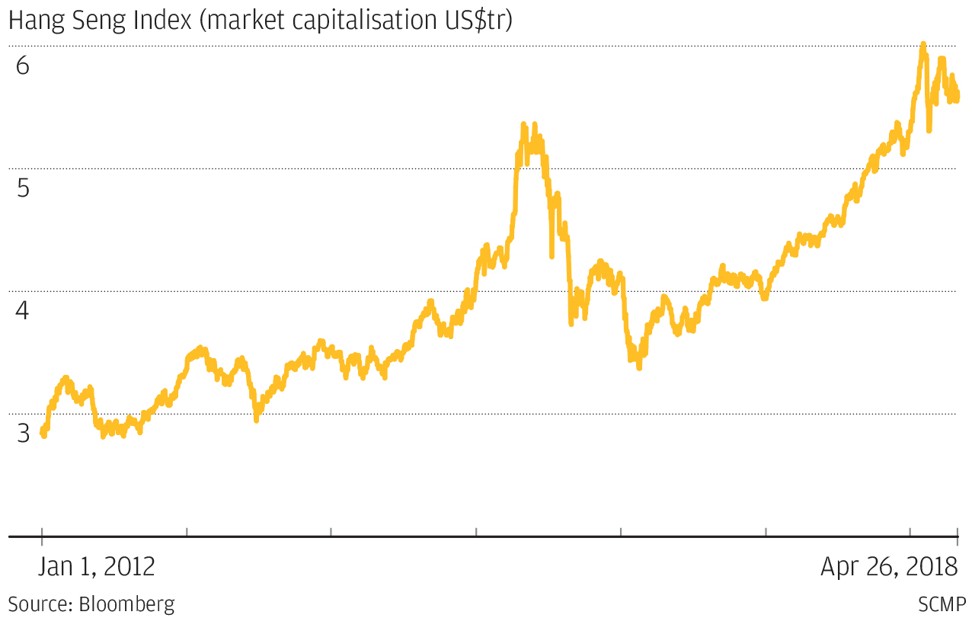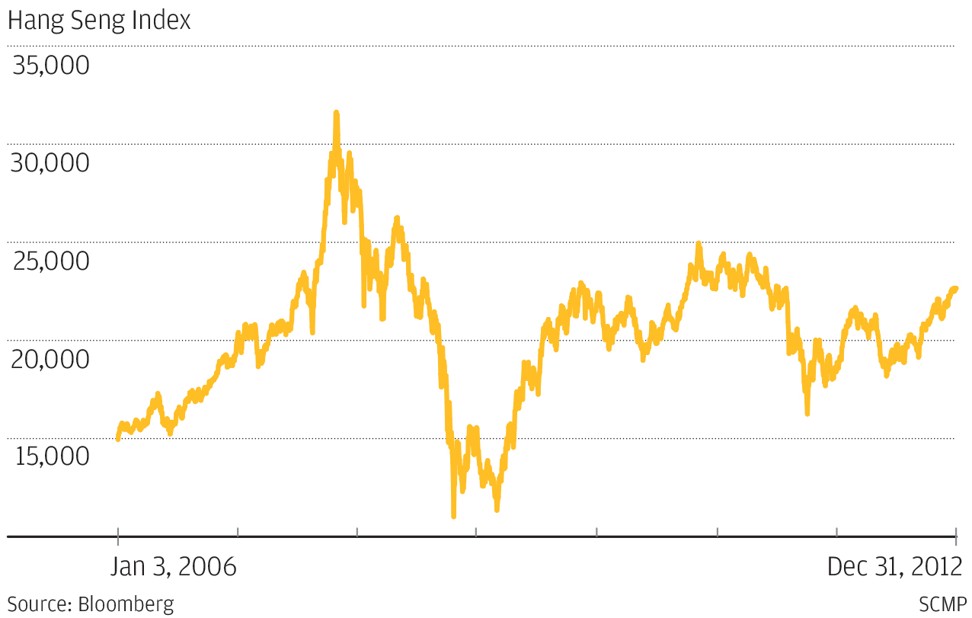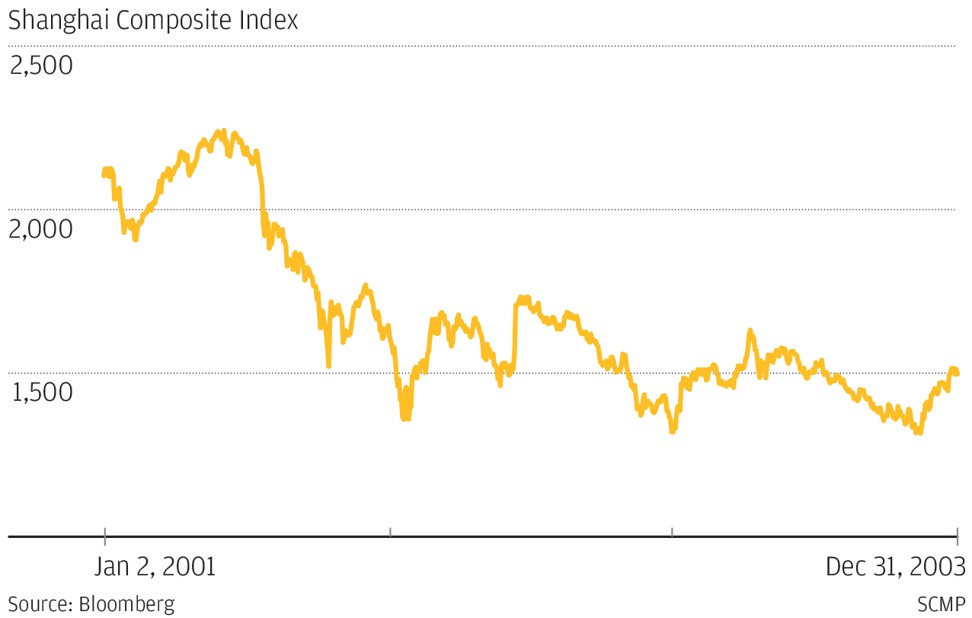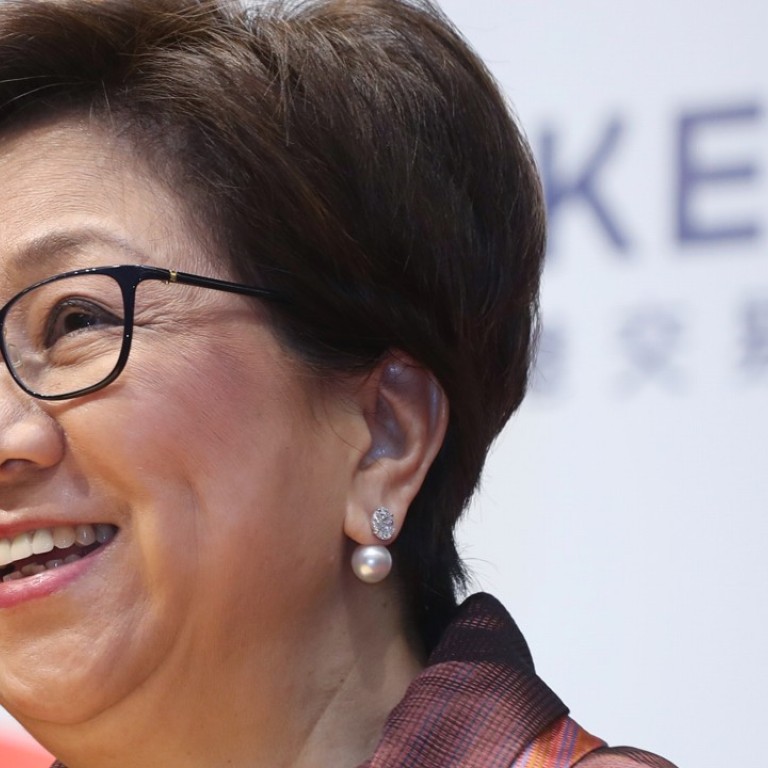
Laura Cha checks in as Hong Kong exchange’s first woman chief in its 127-year history
The newly elected chairman has made mapping a three-year strategic plan – to enhance the exchange’s competitiveness and fend off competition from other overseas exchanges – a priority
To the millions of mainland investors frolicking in China’s go-go stock market of the early 2000s, given a kick start from the country’s membership in the World Trade Organisation, Laura Cha Shih May-lung was the killer regulator anointed by Beijing to crash the party.
Cha, whose married name rhymes with the Chinese word for inspection, soon earned the moniker of the regulator who would “inspect miscreants to their death”.
Even though her tenure as a vice-chairman at the China Securities Regulatory Commission (CSRC) from 2001 to 2004 drew mixed responses, it earned her a place in the history of China’s capital market development – the first Hongkonger and non-mainlander to take on a vice-ministerial position within the central government.
This week, the 68-year-old grandmother of three was elected unopposed as the first woman to chair Hong Kong Exchanges and Clearing (HKEX), the operator of the stock market, in the bourse’s 127 years of history.
Cha’s ascent comes at a critical time. The exchange is striving to strengthen its relevance and position as the go-to market for mainland companies in the face of increasing competition from global and regional exchanges, as well as China’s Shanghai and Shenzhen bourses.
Increasing integration of the Hong Kong and mainland markets, pinned by the city’s Stock Connect schemes with the Shanghai and Shenzhen exchanges since 2014 and 2016, makes China a partner but also a rival as the latter wants to bring home some its biggest overseas-listed companies through depositary receipt issuance.
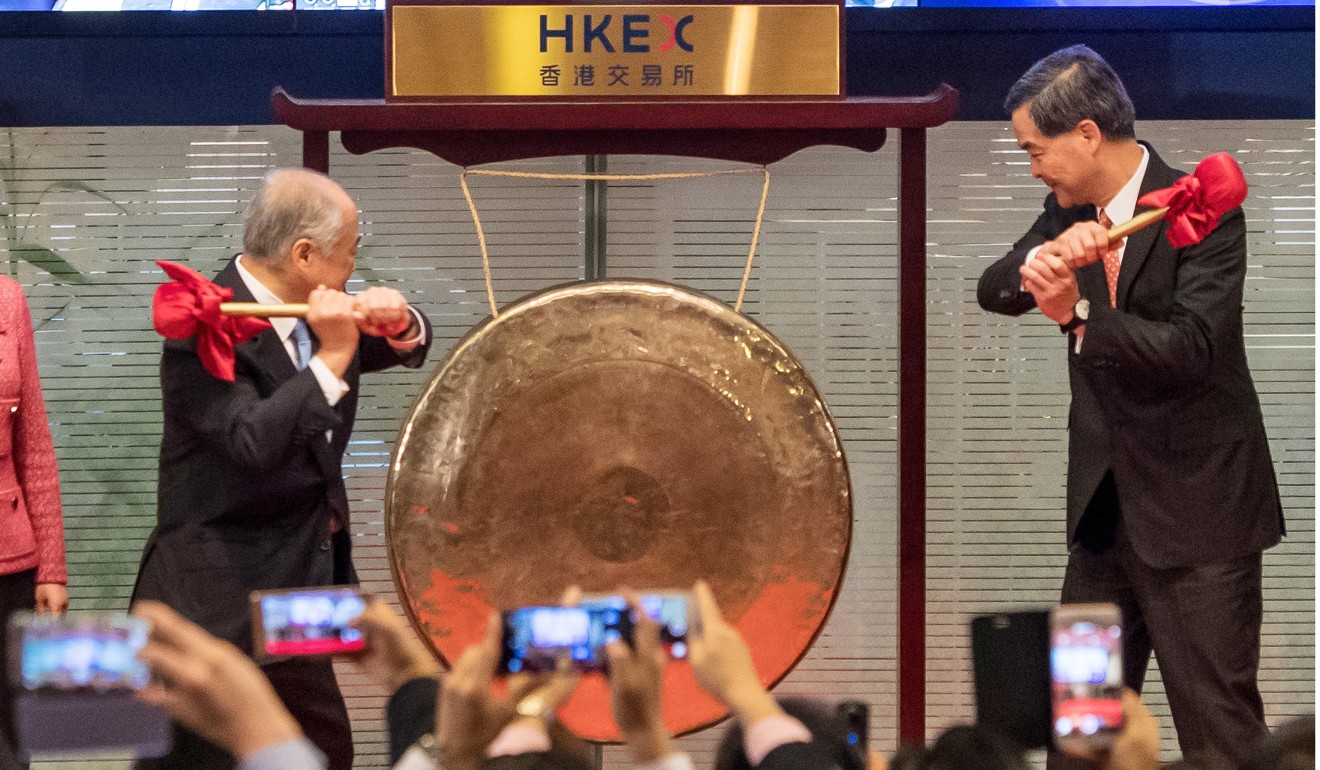
Whether it is globally or locally, regulators such as the SFC and operators like the HKEX are working from different angles, and there is always a balancing act to play
But they are also increasing their collaboration with the CSRC to crack down on cross-border frauds, including going after what Beijing calls “big crocodiles”, or wealthy corrupt mainland businessmen who manipulate the capital markets for illegal gains.
This means Cha has one big balancing act to tackle.
Pointing to her previous roles at the SFC and the CSRC and now with HKEX, Cha argued that they all differed but did not conflict, as each institution worked towards the common objective of ensuring that Hong Kong’s financial markets grew robustly.
“Whether it is globally or locally, regulators such as the SFC and operators like the HKEX are working from different angles, and there is always a balancing act to play,” she said on Thursday at a media briefing after she was elected chairman.
Cha also said she would draw on her CSRC experience and mainland network to enhance communication between Hong Kong and China and foster stronger cross-border cooperation.
“In fact, the cross-border cooperation has never stopped since the launch of H shares 25 years ago,” she added.
To be sure, Cha has made mapping a three-year strategic plan one of her top priorities in the first 100 days in office, to look at how to enhance the exchange’s competitiveness from 2019 to 2021 and fend off competition from other overseas exchanges.
Although the Hong Kong stock market gained 36 per cent last year, it lost its initial public offering (IPO) crown, which it held for the prior two years, to New York, as IPO value dropped to its lowest since 2012. The loss was in part due to the ban on allowing companies with dual-class shareholding structures, commonly preferred by tech firms, to list since the mid 1980s.
To regain the sweet spot, HKEX officials, with the SFC’s support, have proposed to lift that ban on Monday, under new rules that would also allow biotech firms without revenue to go public.
Long-time rival exchange Singapore also announced in January that it was allowing dual-class share firms, in line with the global trend.

“Cha’s major challenge as HKEX’s new chairman is the listing reform. Although the HKEX has announced the new rules, the new listing regime has yet to be tested. The challenge for her is to make sure the regime will be implemented smoothly and to attract many new economy companies to list here,” said Bonnie Chan, a partner at law firm Davis Polk. Chan has worked with Cha since 2013 as a council and committee member of the Financial Services Development Council, the government’s advisory body on financial issues that Cha still heads.
“She has strong leadership and is capable of drawing on a pool of professional talent to work for the council … We could not have done so much work without Cha’s ability to draw the many professionals to voluntarily do the job,” Chan said.
Cha said she would step down from the council once the government had found a replacement.
Prior to the council, Cha, a career financial regulator, had served on the HKEX board from 2006 to 2012.
Cha had a relative late start to her career to focus on bringing up her two children and being a full-time housewife for six years in the US where she then lived.
“It was so hard to get help in the US, and as a mother of two I had to be a full-time housewife. I only started my career after my children went to school,” she had said in an interview.
It was during that period that she became interested in law and returned to school to read law. She qualified as a lawyer in the US before returning to Hong Kong in 1985, when her businessman husband Victor Cha Mou-zing was called back to run the family business, HKR International, the developer of Discovery Bay on Lantau Island.
Cha went to work at a law firm before joining the SFC in 1991, where she stayed till former Chinese premier Zhu Rongji invited her to join the CSRC in 2001. During the decade to 2000, the HKEX and the SFC had garnered extensive experience and expertise in bringing Chinese state firms to market and instilling corporate governance in the process, while weathering the 1997 Asian financial crisis.
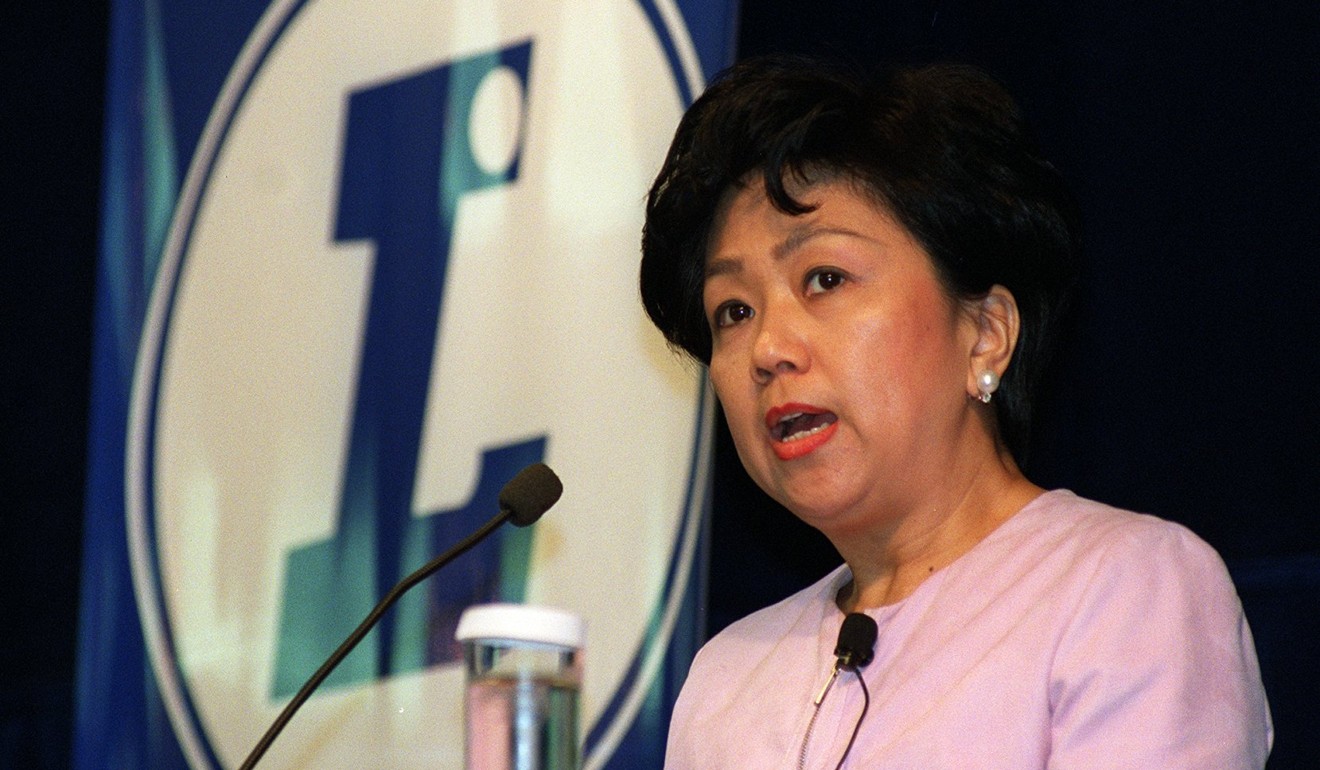
Cha was paid up to 5 million yuan (US$790,557 at current rates) for her CSRC role, in a specially-approved remuneration package that was several times more than what even the Chinese president was earning, according to mainland Chinese media. She took the equivalent salary of her fellow deputy regulators, and donated the remainder of the pay to a fund for educating Chinese regulators, the reports said.
But Cha struggled to implant mature, Hong Kong-style regulatory practises in the mainland to weed out rampant insider trading in the three years she was at the CSRC, as they would have ruffled vested interests. Changing China’s broader political, economic and legal framework remains a tall order.
But many Chinese investors would hold her as “Hong Kong’s iron lady” who helped drive mainland stocks to a three-year bear market.
“We knew of her as the ‘iron lady’,” said Wu Kan, a fund manager at Shanshan Finance in Shanghai who has been tracking China’s stock market since 1998.
“But it is not fair to blame the bear market on her, maybe it was a coincidence. No one is powerful enough to let the market rise and the purpose of getting her here then was to strengthen market oversight, not to create a bull market.”
Cha returned to Hong Kong after her stint at the CSRC, and has been a member since 2004 of the Executive Council, or cabinet, of all four of the city’s chief executives: Tung Chee-hwa, Donald Tsang Yam-kuen, Leung Chun-ying and incumbent Carrie Lam Cheng Yuet-ngor.
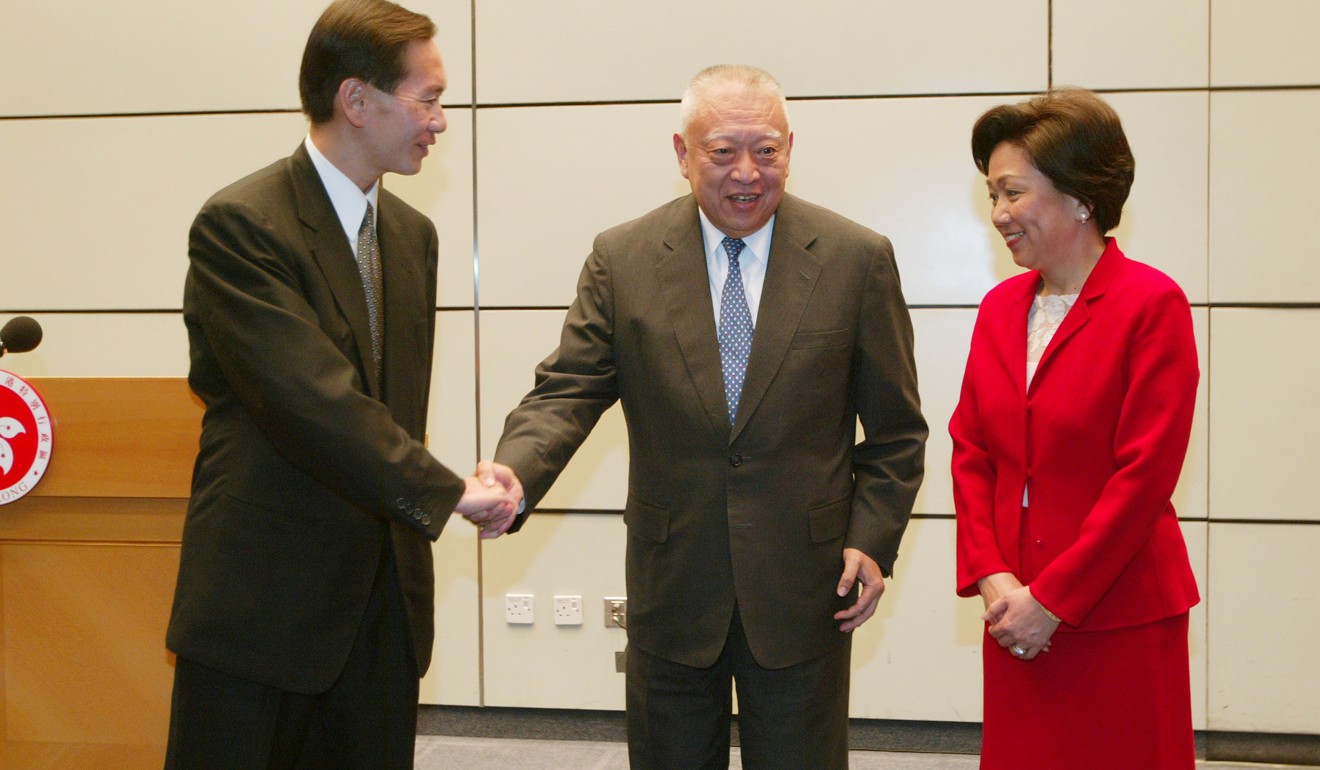
Cha’s major challenge as HKEX’s the new chairman is the listing reform
Brokers said she might struggle to understand the needs of smaller players.
“Cha was a former SFC head and she has a regulatory mindset. She does not understand the difficulty that many of the 500 local players have in competing with international big players,” said Christopher Cheung Wah-fung, a lawmaker representing the financial services sector.
“We hope Cha would focus more on promoting the financial services industry in Hong Kong,” he said.
Whatever the challenges, Cha is seen likely to rise above them.
Ermanno Pascutto, who recruited Cha to the SFC and is now director of the Canadian Foundation for Advancement of Investor Rights, described her as “very adept” at dealing with senior leaders and executives.
“Laura is the sort of person you could send to New York, Beijing or to talk to Legco [Legislative Council] and she would do a creditable job in all of them,” Pascutto said an earlier interview.
“There are few people who could pull that off.”
Additional reporting by Zhang Shidong and Karen Yeung


